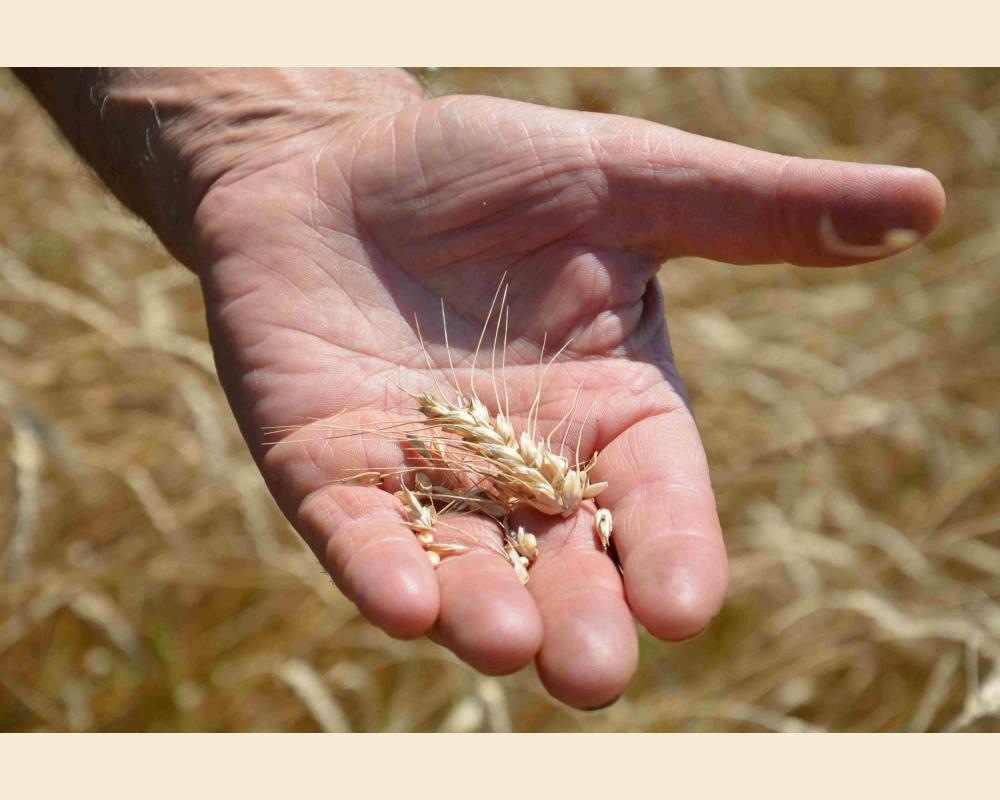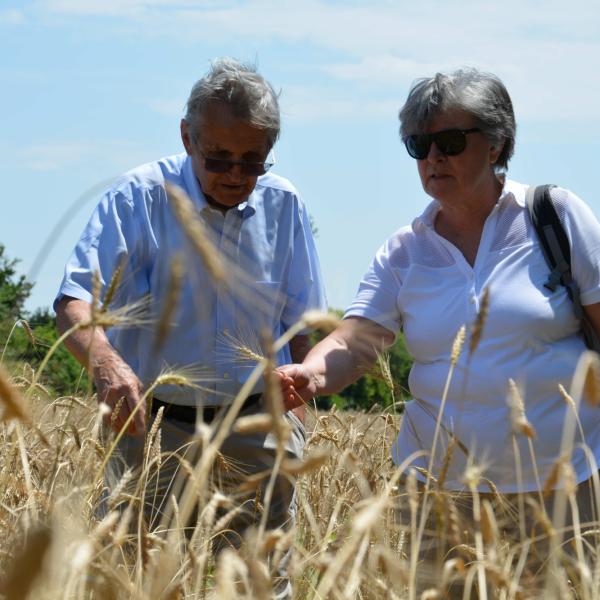Why sow the Aleppo Mixture?
The advantages for the organic farmer

One of the problems of organic agriculture, regardless of the crop, is the availability of seed from varieties selected for organic - the same applies to biodynamic. When organic seed is available, it is more expensive and it is seed produced organically but varieties that have not necessarily been selected for organic.
There is a reason behind all this, and the reason concerns a difference between organic and industrial agriculture that is little talked about.
Thanks to the use of synthetic chemistry, industrial agriculture tends to be quite similar regardless of the location, and in fact the differences concern mainly the species that are cultivated and much less the varieties. In addition, genetic improvement, that is, the science that produces the varieties whose seeds the farmer buys from seed companies, makes use during the selection of the same synthetic chemistry that is used in industrial agriculture. This leads to two consequences: the first is that for this type of agriculture, which is very homogeneous, few varieties are enough with a consequent loss of biodiversity, and the second is that those seeds give plants that produce well only if synthetic chemistry is used. So using those seeds purchased in derogation because they cost less can only lead to lower productions.
On thecontrary, organic agriculture is based on different environments and different practices that, in order to produce well, need many different varieties of wheat, corn, tomatoes, zucchini, cauliflower, etc., each selected for each type of organic agriculture. However, it is not economically convenient for seed companies to produce little seed of many different varieties and this is precisely where evolutionary populations such as the Aleppo Mixture come into play. Being made up of many different plants, these populations evolve (hence their name), that is, they change from one season to the next because every year natural selection favors the plants most suitable for that soil, that climate, that type of organic agriculture and after a few years they will be perfectly adapted to the place where they are cultivated. This implies that the organic farmer is able to produce his own seed every year. When they move to a new location, they change as they adapt to those new conditions. In addition, the extraordinary diversity they contain protects them from diseases, insects and, in the case of cereals, from weeds - this has been demonstrated by scientific research - eliminating the use of chemistry (even that allowed in organic farming), thus making the task of the organic farmer easier and reducing expenses.
With the name of Mixture of Aleppo there are many populations, which all had the same origin, but which then differentiated themselves by adapting to many different environments.
Text by Stefania Grando and Salvatore Ceccarelli




